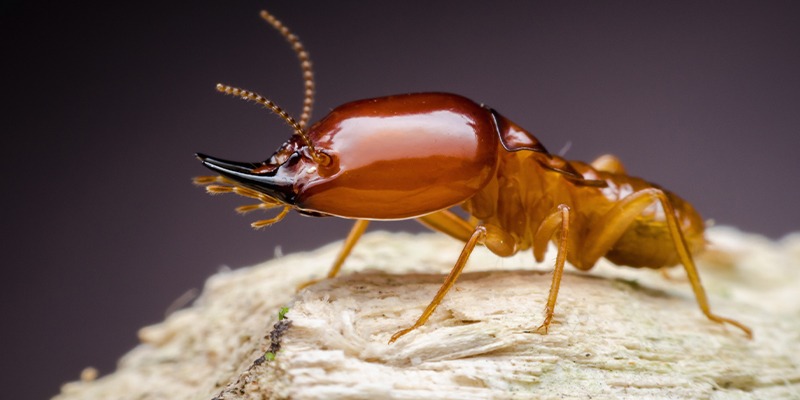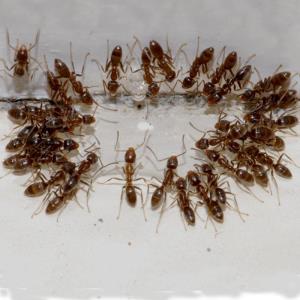Comprehensive Termite Control: Protect Your Building with Specialist Services
Comprehensive Termite Control: Protect Your Building with Specialist Services
Blog Article
Environmental Influence of Insect Control: Balancing Performance With Sustainability
The environmental impact of pest control is a vital issue that calls for a delicate balance between accomplishing performance in making sure and handling parasites sustainability of our ecosystems. As we strive to shield our plants, homes, and health and wellness from the risks positioned by bugs, the methods we use can inadvertently hurt the environment. From using unsafe chemicals that seep right into our dirt and water to the unintentional repercussions on non-target species, the repercussions of standard pest control methods are far-reaching. There are arising approaches that provide hope for a much more sustainable approach to pest management. These remedies not just objective to resolve the immediate insect troubles yet also consider the lasting health of our world.
Harmful Chemicals in Parasite Control
The use of dangerous chemicals in bug control positions significant environmental and health and wellness threats that necessitate mindful factor to consider and reduction methods. Chemicals, insecticides, and herbicides are generally made use of to eliminate parasites, yet their extensive application can bring about unexpected consequences. These chemicals can pollute soil, water resources, and the air, affecting not just the targeted parasites but also useful pests, wildlife, and human beings.

To attend to these threats, incorporated insect monitoring (IPM) techniques are being promoted as a much more sustainable choice. IPM entails a combination of techniques such as organic control, habitat adjustment, and the targeted usage of chemicals as a last option (ant control walkerton nc). By taking on an all natural method to pest control, we can lessen the ecological and wellness effects related to hazardous chemicals while successfully managing pest populaces
Influence On Non-Target Variety
Considering the unintentional consequences of parasite control techniques, the effect on non-target varieties is an essential facet that calls for thorough analysis. While insect control procedures aim to target certain insects, various other microorganisms in the ecological community may be inadvertently impacted. Non-target varieties, consisting of advantageous insects, birds, animals, and even plants, can suffer straight or indirect injury from pesticide applications or biological control approaches.
Pesticides can have deadly or sub-lethal effects on non-target varieties. For example, pesticides developed to deal with a certain bug bug may harm pollinators like bees or natural killers such as ladybugs. Additionally, chemical deposits can build up in the environment, impacting non-target microorganisms in time. Biological control representatives, if not species-specific, can posture risks to unexpected targets, interfering with the eco-friendly balance.
To reduce the influence on non-target species, integrated parasite monitoring (IPM) approaches that emphasize an all natural technique to pest control are recommended. These methods ant control pineville nc focus on making use of eco-friendly practices, minimizing damage to advantageous organisms while properly managing pest populations. Performing extensive danger evaluations and monitoring the results of parasite control initiatives are vital action in guarding non-target species and advertising total ecosystem health and wellness.
Dirt and Water Contamination
Unintentional ecological repercussions of parasite control techniques expand past affecting non-target species, with considerable implications for soil and water contamination - termite control. Pesticides, herbicides, and chemical plant foods made use of in parasite control can seep right into the dirt and pollute groundwater, posing a danger to both aquatic and earthbound environments.
Water contamination is another vital concern connected with bug control practices. Overflow from farming areas treated with pesticides can carry these chemicals into neighboring water bodies, influencing marine microorganisms and water quality. Contaminants in water resources can have significant effects, affecting not just water life but additionally human health with the consumption of contaminated water or aquatic organisms. To mitigate dirt and water contamination from pest control activities, integrated pest administration approaches that focus on sustainability and reduce chemical inputs are vital.
Air Air Pollution From Pesticide Use
Direct exposure to airborne chemicals throughout agricultural applications presents a substantial problem for air contamination control measures. Additionally, pesticide drift, where chemicals are lugged by the wind to unplanned areas, can lead to the contamination of neighboring ecological communities and water bodies.

Techniques for Lasting Bug Control
In the world of farming methods, executing sustainable parasite control techniques is extremely important for maintaining environmental equilibrium and protecting crop yields. Lasting bug control stresses using ecologically pleasant approaches to handle parasite populaces properly while lessening harm to non-target organisms and ecological communities. Integrated Insect Monitoring (IPM) is a widely taken on technique that integrates biological, social, physical, and chemical control approaches to accomplish long-lasting parasite management solutions.
Crop turning and diversity are likewise reliable techniques to interfere with pest life cycles and produce much less favorable conditions for pests to prosper. Inevitably, by incorporating these lasting insect control approaches, farmers can attain an equilibrium between pest management efficiency and environmental stewardship.
Final Thought
Finally, the ecological effect of parasite control approaches must be very carefully thought about to stabilize performance with sustainability. Harmful chemicals made use of in insect control can cause dirt and water contamination, air pollution, and harm non-target types - ant control. It is important to carry out sustainable parasite control approaches to minimize these adverse results on the setting and promote a much healthier community for future generations
By adopting a holistic method to pest control, we can decrease the environmental and wellness influences linked with harmful chemicals while efficiently taking care of pest populaces.

To alleviate the air pollution triggered by chemical usage, it is important to adopt incorporated parasite management strategies that prioritize the use of non-chemical pest control techniques, such as plant turning, all-natural killers, and resistant crop varieties. Sustainable parasite control emphasizes the use of environmentally friendly techniques to take care of insect populaces effectively while lessening damage to non-target microorganisms and environments. Integrated Bug Management (IPM) is a commonly taken on method that incorporates biological, cultural, physical, and chemical control approaches to attain long-term insect administration options.
Report this page